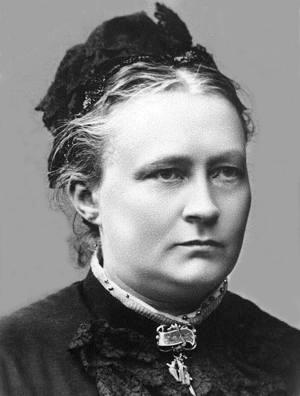Alexandra is a female given name of Greek origin. It is the first attested form of its variants, including Alexander. Etymologically, the name is a compound of the Greek verb ἀλέξειν and ἀνήρ. Thus it may be roughly translated as "defender of man" or "protector of man". The name Alexandra was one of the epithets given to the Greek goddess Hera and as such is usually taken to mean "one who comes to save warriors". The earliest attested form of the name is the Mycenaean Greek 𐀀𐀩𐀏𐀭𐀅𐀨, written in the Linear B syllabic script. Alexandra and its masculine equivalent, Alexander, are both common names in Greece as well as countries where Germanic, Romance, and Slavic languages are spoken.
Gerda is a feminine given name. Notable people with the name include:
Axel is a Scandinavian, German, French, and Dutch masculine given name. In Estonia, Denmark, and Norway the spelling Aksel is more common. The Finnish form of the name is Akseli. A French feminine form is Axelle.
Astrid is a given name of Scandinavian origin, a modern form of the name Ástríðr. Derived from the Old Norse Ássfriðr, a compound name composed of the elements áss and fríðr.
Inge is a given name in various Germanic language-speaking cultures. In Swedish and Norwegian, it is mostly used as a masculine, but less often also as a feminine name, sometimes as a short form of Ingeborg, while in Danish, Estonian, Frisian, German and Dutch it is exclusively feminine. The feminine name has the variant Inga.
Einar is a Scandinavian given name deriving from the Old Norse name Einarr, which according to Guðbrandur Vigfússon is directly connected with the concept of the einherjar, warriors who died in battle and ascended to Valhalla in Norse mythology. Vigfússon comments that 'the name Einarr is properly = einheri" and points to a relation to the term with the Old Norse common nouns einarðr and einörð.
Lind is a surname of both Swedish and Estonian origin. In Swedish, it is the word for the linden tree. In Estonian, it is the word for bird.
Lina is an international feminine given name. Languages of origin include: English, Italian, Turkish, Lithuanian, Russian, Sanskrit, Spanish, Swedish, Persian, Kurdish, Arabic. It is also the short form of a variety of names ending in -lina including Catalina, Angelina, Carmelina, Carolina, Emelina, Marcelina, Nikolina, Rosalina, Italina, and Žaklina. Lina is a Finnish, Italian, and Slovene feminine given name that is a feminine form of Lino, Lin, and Linus.

Agnes is a feminine given name derived from the Greek Ἁγνή Hagnḗ, meaning 'pure' or 'holy'. The name passed to Italian as Agnese, to French as Agnès, to Portuguese as Inês, and to Spanish as Inés. It is also written as Agness. The name is descended from the Proto-Indo-European *h₁yaǵ-, meaning 'to sacrifice; to worship,' from which is also the Vedic term yajña. It is mostly used in Greece and countries that speak Germanic languages.
Hans is a Germanic male given name in Afrikaans, Danish, Dutch, Estonian, Faroese, German, Norwegian, Icelandic and Swedish-speaking populations. It was originally short for Johannes (John), but is now also recognized as a name in its own right for official purposes. The earliest documented usage was in 1356 in Sweden, 1360 in Norway, and the 14th century in Denmark.
Anita is a feminine given name. The name and its variants are now common worldwide, especially in regions where Indo-European languages are spoken, namely Europe, South Asia, North America.
Gunter or Günter may refer to:

Anna is a feminine given name, the Latin form of the Greek: Ἄννα and the Hebrew name Hannah, meaning "favour" or "grace".

Iris is a feminine name.
Grete or Grethe is a feminine given name, a derivate of Margaret. It is most often used in Scandinavia, Estonia, and German-speaking Europe.
Nina is a feminine given name with various origins and alternate spellings accordingly. Nina may also serve as a short form of names ending in "-nina/-ina", including Antonina, Clementina, Constantina, Giannina, etc.; it can also serve as a diminutive form of Anna.
Ellen is a female given name, a diminutive of Elizabeth, Eleanor, Elena, and Helen. Ellen was the 609th most popular name in the U.S. and the 17th in Sweden in 2004.
Per is a Scandinavian masculine given name. It is derived from Greek Πέτρος, Petros. The name is a variant of Peter, a common masculine name of the same origin. Other Scandinavian variants of Per are Pehr, Peer and Pär.

Minna is a feminine name of Germanic origin, meaning courtly love, and is also a diminutive of Wilhelmina. It is now particularly known in Finland and Sweden.
Gerd is a common Germanic name and a unisex given name. As a masculine name it is a shortened form of Gerhard and Gerardus. As a feminine name it may be a form of Gerda or Gertrud. See also Gert.



